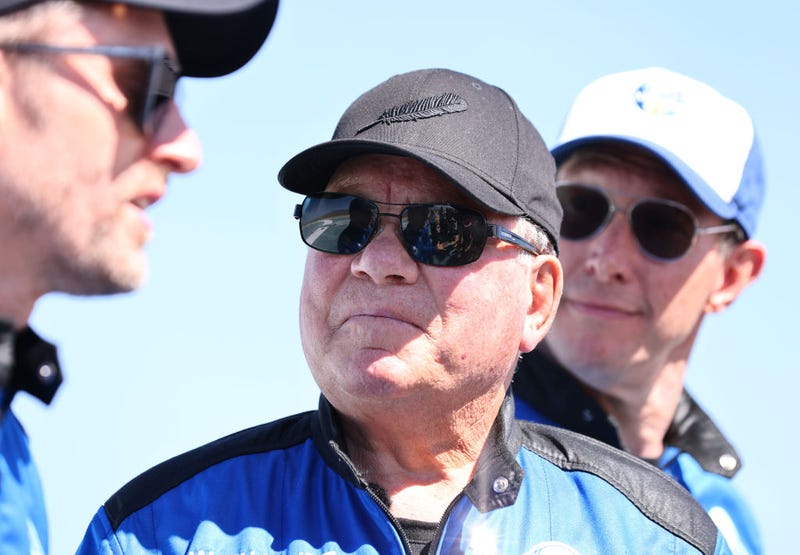
Maybe going to space on a billionaire's rocket isn't all it's meant to be, as actor and "Star Trek" star William Shatner shared in his new book that he was filled with "overwhelming sadness" after going into space.
On Oct. 13, 2021, Shatner, 90, became the oldest person to leave Earth via a rocket into space, but the journey wasn't what he was expecting, according to his new book "Boldly Go."
An excerpt from the book was shared with Variety, and in it, Shatner describes his experience boarding the Blue Origin rocket from training courses to the real thing. One conversation with engineers even revolved around what to do if the rocket explodes.
"During our preparation, we had gone up eleven flights of the gantry to see what it would be like when the rocket was there," Shatner wrote. "We were then escorted to a thick cement room with oxygen tanks. 'What's this room for?' I asked casually."
The Blue Origin fellow responded by saying, "Oh, you guys will rush in here if the rocket explodes," Shatner wrote.
The actor went on to write about his fears as the day arrived, saying that the "Hindenburg" was stuck in his head, but continued the journey nonetheless.
After the rocket left Earth, Shatner wrote that while others on board began doing somersaults and enjoying the feeling of weightlessness, he "wanted no part in that. I wanted, needed to get to the window as quickly as possible to see what was out there."
But he quickly realized that his predetermined thoughts on space and what it would look like were not anything close to what he saw.
"Everything I had thought was wrong. Everything I had expected to see was wrong," he wrote, later adding that it was "among the strongest feelings of grief" he has ever had.
He goes on to describe what he felt as the "Overview Effect," something felt by many astronauts.
"Essentially, when someone travels to space and views Earth from orbit, a sense of the planet's fragility takes hold in an ineffable, instinctive manner," Shatner said.
Shatner says in his book that after his journey beyond the Earth's atmosphere, he was left viewing the world and things he saw before in a different light.
"It reinforced tenfold my own view on the power of our beautiful, mysterious collective human entanglement, and eventually, it returned a feeling of hope to my heart," he said.


